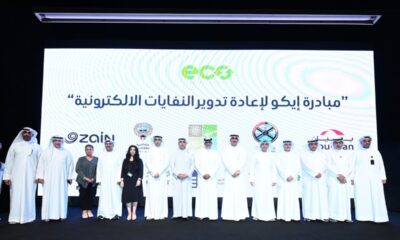KUWAIT: The Environment Public Authority (EPA) reaffirmed Thursday that the protection of biodiversity is a collective responsibility and a moral and humanitarian obligation, requiring unified national and global efforts to secure a prosperous present and a sustainable future for generations to come. Acting Director General of the EPA Nouf Behbehani made the remarks during a ceremony marking the International Day for Biological Diversity (IBD), organized by the Public Authority for Applied Education and Training (PAAET), Kuwait Oil Tanker Company (KOTC), and the National Committee of the International Union for Conservation of Nature (IUCN).
In her address, Behbehani noted that IBD, observed annually on May 22, commemorates the adoption of the Convention on Biological Diversity during the landmark 1992 Earth Summit in Rio de Janeiro. The summit, she said, marked a pivotal moment in global environmental governance with the adoption of three major conventions: the Convention on Biological Diversity, the United Nations Framework Convention on Climate Change (UNFCCC), and the United Nations Convention to Combat Desertification (UNCCD), forming the foundation of international environmental sustainability efforts.
Behbehani highlighted that this year’s celebration is held under the theme “Be Part of the Plan,” which calls for harmonizing development with nature and underscores the urgent need to redefine humanity’s relationship with the environment. She emphasized that safeguarding biodiversity is vital to ensuring food and water security, climate stability, and public health.
She outlined four key pillars of the national biodiversity campaign: raising public awareness on the importance of biodiversity; updating national strategies in alignment with international frameworks; strengthening cross-sectoral collaboration to fulfill obligations under global environmental treaties; and encouraging development initiatives that prioritize environmental protection and long-term sustainability.
Representing KOTC’s Acting CEO Sheikh Khaled Ahmed Al-Malik Al-Sabah, Acting Director of the Health, Safety and Environment Group Mohammed Mirza reiterated the company’s longstanding commitment to environmental stewardship. He affirmed KOTC’s active role in promoting sustainable practices and supporting national initiatives aligned with Kuwait’s environmental vision.
Mirza highlighted the company’s achievements, including the full operation of its LPG filling branches in Shuaiba and Umm Al-Aish using solar energy. He also pointed to the environmental compliance of the company’s fleet, which adheres to international maritime regulations such as ballast water treatment systems and emission reduction measures. KOTC, he added, remains engaged in various environmental initiatives, including coastal cleanups, awareness campaigns, tree planting, recycling, and climate change mitigation. Meanwhile, Dr Wijdan Al-Oqab, Chairperson of the IUCN National Committee and President of the Kuwait Environment Protection Society (KEPS), emphasized Kuwait’s international commitment to biodiversity through its ratification of the Convention on Biological Diversity and the submission of national reports.
She called for a serious re-evaluation of the current environmental situation in the country and advocated for a shift from an exploitative relationship with nature to a balanced and cooperative approach. Dr Al-Oqab lauded the EPA’s executive role in implementing environmental legislation and monitoring adherence to global agreements, in addition to the contributions of the Kuwait Institute for Scientific Research and civil society organizations in advancing environmental awareness.
She further praised KEPS’ pioneering efforts in public education, including the production of Arab-recognized environmental documentaries such as “Every Day a Bird” and “Every Day a Plant,” which have documented Kuwait’s wildlife and now serve as valuable scientific and educational resources across the Arab world and within Kuwaiti schools. The event underscored a unified call for action to protect biodiversity as a cornerstone of sustainable development and environmental resilience. — KUNA


















